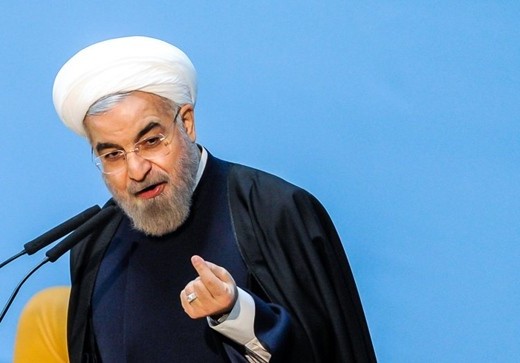The recent call by President Rouhani for putting major national issues to referendum has met with mixed reactions from politicians, analysts and major players on Iran’s political landscape. His remarks have drawn a broad welcome from reformists and a mildly critical response from principlists.
“Once and for all, as for immensely important questions over which there might be disagreement, matters which are of great significance to all and have an impact on everyone’s life, why don’t we hold a referendum?” President Rouhani proposed in his speech Sunday.
It has been the first time that an Iranian president has floated the idea of conducting a referendum on major issues. The following is the translation of some reactions to President Rouhani’s comments Fararu news website posted online on January 5:
Hossein Shariatmadari (Kayhan Managing Editor)
The article reads in extremely important economic, political, social, and cultural matters, the function of the legislature may be exercised through direct recourse to popular vote through a referendum.
Also, the very article stresses that any request for such direct recourse to public opinion must be approved by two-thirds of the members of the Islamic Consultative Assembly. Therefore, unlike what the esteemed president said, parliament cannot be bypassed for such a referendum.
The other popular vote stipulated in Article 177 of the Constitution mainly revolves around revisions to the Constitution. The referendum in question requires an edict by the Supreme Leader and cannot be called for by parliament.
If President Rouhani was referring to cultural and social matters, the solution for such issues passes through parliament. If he was referring to the second type of referendum (amending the Constitution which is the subject of Article 177) that seems unlikely, it does not require parliament’s go-ahead.
Of course, if the president’s appeal was for such a referendum, preparations should be made and an order by the Supreme Leader is required.
Hamid Reza Jalaeipour (journalist)
The country is currently facing fundamental questions because of which national and public consensus has been seriously hurt. In other words, the fact that the take of society on some issues is far from clear has paved the way for different groups to stake out their viewpoints in the name of people, and – on some occasions – dictate their views, downplaying other groups as minority.
No doubt, what is important here is to shed more light on the country’s problems in 2009 [when Iran was hit by unrest after two candidates disputed the results of presidential election]. Five years on, those problems have yet to be resolved, and continue to be the main bone of contention at home.
So, if the country is to put anything to referendum, it should make decisions – through popular vote – on the 2009 postelection incidents in the first place.
Javad Haghshenas (reformist political activist)
If the president had said for which problems he was calling for a referendum, we could have elaborated better. When it comes to parliament, the general approach of the legislative body does not seem to allow the materialization of a referendum.
The president believes that popular vote is a vote other than what is unfolding on parliament floor. More light should be shed on this question. Up for discussion is not the gravity of Iran’s domestic issues; rather the question is: What kind of problem the head of the eleventh government has come across that the oversight body does not allow him to solve. The president had better talk with people more frankly and avoid keeping what he wants to say under wraps.
Sadegh Zibakalam (political analyst)
That party, president and his cabinet will be reelected if people feel satisfied with their performance. Otherwise people will vote for another party or group.
In Iran, the circulation of elite is nominal. But in practice, such circulation is simply a small, yet incomplete movement. Eighteen months ago, people in Iran took part in an election, said “no” to the policies of the eight years [under President Ahmadinejad] and picked Mr. Rouhani as a replacement for [the one who adopted] those policies.
This is where the shoe starts to pinch. The majority of people said “no” to the previous policies calling for change and implementation of new policies, but the elected government cannot practically put into force the policies and plans it has on its agenda. Why? Because new policies cannot be implemented for different reasons despite the fact that people voted – in an election – for a change to past policies and voiced willingness for new policies.
Mohammad Safari (editor-in-chief of Siasat-e Rooz daily)
The government seems to be in need of such a measure [holding referendum] to be able to reach its intended objectives. The stage for the referendum was set yesterday [Sunday January 4] when Mr. Rouhani called for holding it. Certainly, the proponents and opponents of this presidential request will put forward their standpoints and analyses in the days to come.
